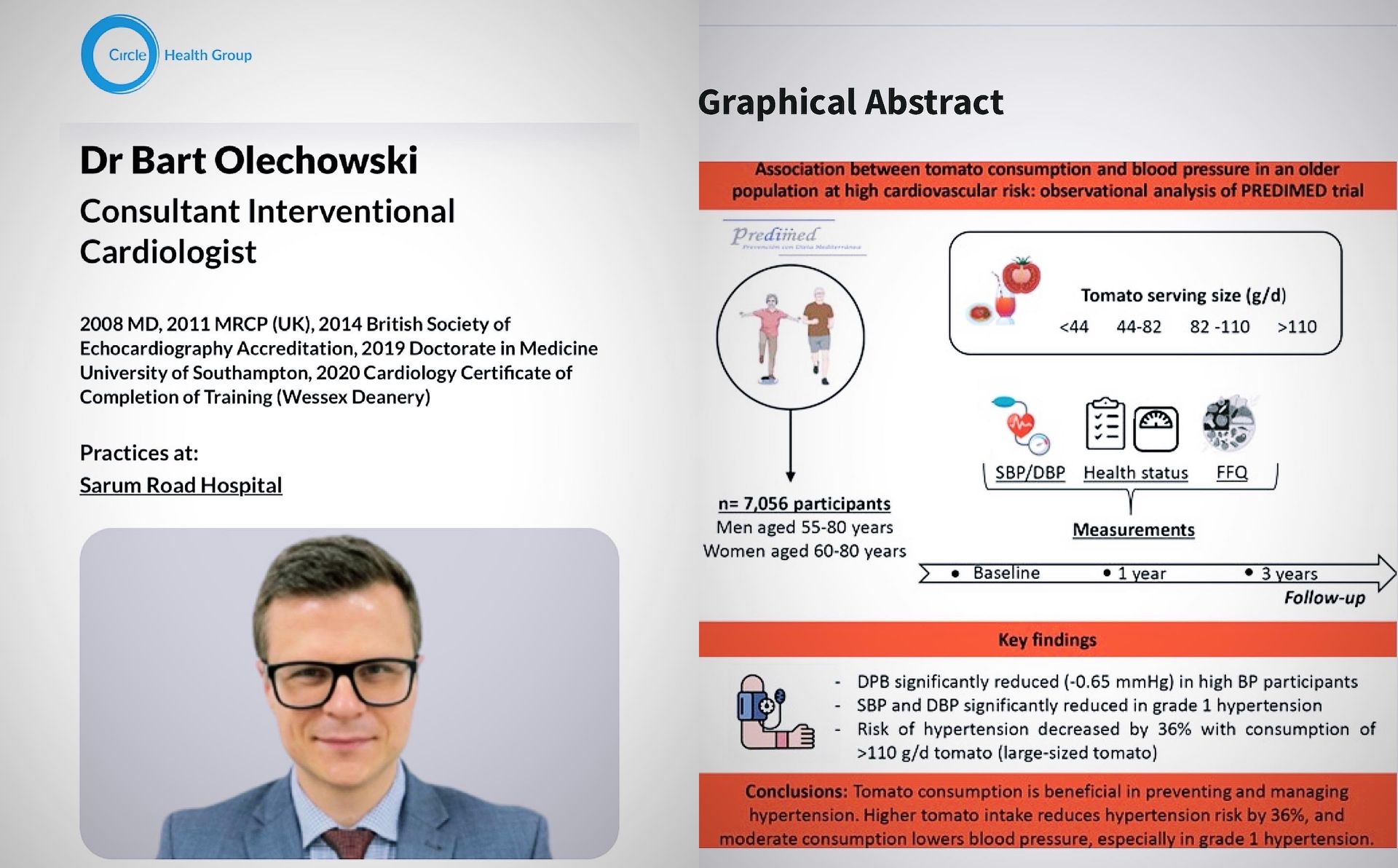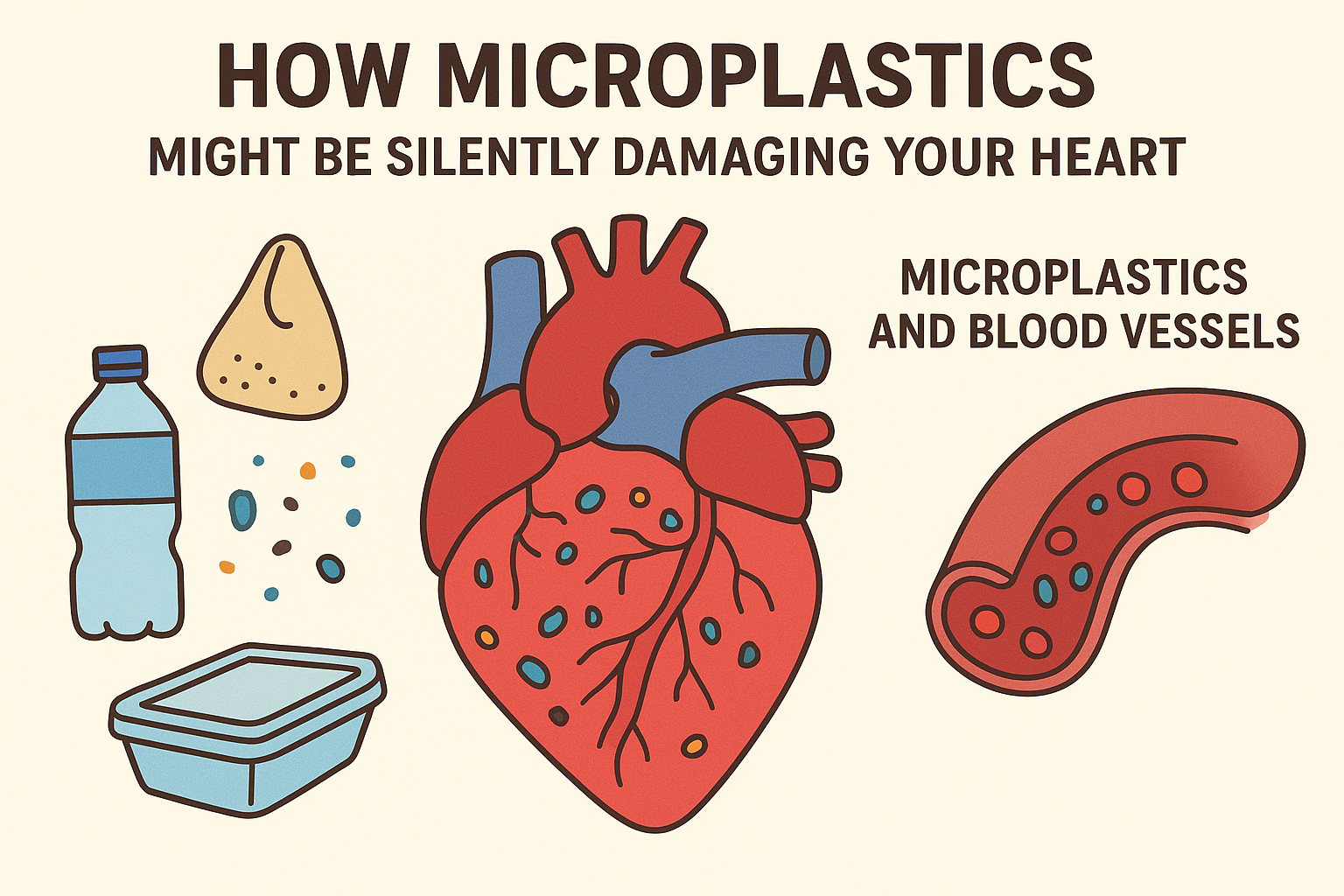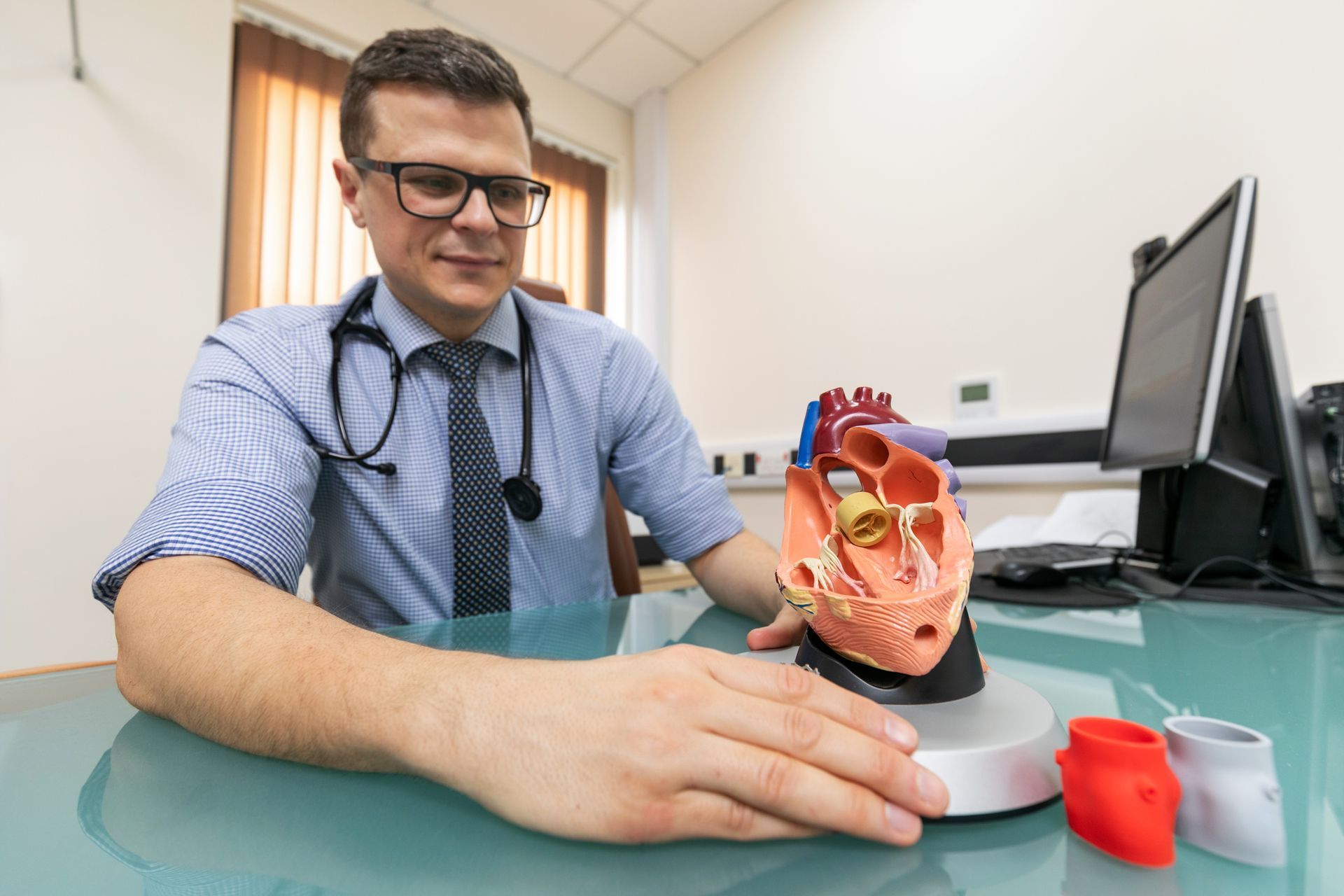Can eating TOMATOES help to reduce Your BLOOD PRESSURE ?

Can eating TOMATOES 🍅🍅🍅 help to reduce Your BLOOD PRESSURE ?
-
YES, according to the study above, which was published in European Journal of Preventive Cardiology in November 2023.
- It was a large prospective study, which included over 7000 individuals, of whom over 80% had a diagnosis of HIGH BLOOD PRESSURE.
- Study participants were grouped into 4 different categories depending on the amount of tomatoes eaten.
- The risk of HIGH BLOOD PRESSURE was lower with >110g/day consumption of Tomatoes as compared to <44g/day.
- Of note 110 grams of Tomatoes is 10 small tomatoes, 2 average Roma tomatoes or 1 average Beefsteak tomato.
- The authors concluded: 'Tomato consumption, including tomato-based products, is beneficial in preventing and managing hypertension. Higher tomato intake reduces hypertension risk by 36%, and moderate consumption lowers blood pressure, especially grade 1 hypertension'.
Link to the full article below ⬇️:
https://academic.oup.com/eurjpc/advance-article/doi/10.1093/eurjpc/zwad363/7450162?login=true
------------------------------------------------------------------------------------------
📸 Private Cardiology Consultations every Wednesday evening at Sarum Road Hospital in Winchester. Dr Olechowski performs Echocardiogram, Heart beat monitors, Cardioversions and 24 hours Blood pressure monitors.
============================================================
Title: The Heart's Harmony: Unlocking Cardiovascular Wellness through a Healthy Diet
Introduction:
In the realm of cardiovascular health, the saying "you are what you eat" holds profound significance. The intricate dance between dietary choices and the well-being of our heart is a topic that has captured the attention of medical experts like Dr Bart Olechowski, a private
cardiologist based in Winchester and Basingstoke, Hampshire.
Main Text:
Understanding the Link:
The human heart, a marvel of engineering, is susceptible to a range of issues, from chest pain and palpitations to breathlessness. Dr Bart, has often emphasized the fundamental link between diet and cardiovascular health. A diet rich in nutrients, antioxidants, and fiber contributes significantly to maintaining optimal blood pressure, cholesterol levels, and overall heart function.
The Impact of Nutrient-Rich Foods:
A diet abundant in fruits, vegetables, whole grains, and lean proteins forms the cornerstone of cardiovascular well-being. These nutrient-dense foods provide essential vitamins and minerals, fostering a robust immune system and reducing inflammation—a key player in cardiovascular
diseases. Dr Olechowski underscores the significance of Omega-3 fatty acids found in fatty fish, nuts, and seeds, which have been shown to reduce the risk of heart disease.
Balancing Act:
Maintaining a healthy balance between macronutrients—proteins, fats, and carbohydrates—is crucial. Dr Bart often advises patients to opt for complex carbohydrates, such as whole grains, over refined sugars. This not only helps in weight management but also stabilizes blood sugar levels, reducing the risk of diabetes—a significant contributor to cardiovascular issues.
The Sodium Conundrum:
Excessive sodium intake is a known culprit in the development of hypertension, a major risk factor for heart disease. Dr Olechowski advocates for a mindful approach to salt consumption, urging individuals to choose fresh, whole foods over processed options.
Elevating Heart Health with Physical Activity:
A healthy diet and regular physical activity form a synergistic alliance in the pursuit of cardiovascular well-being. Dr Bart highlights the role of exercise in maintaining a healthy weight, improving blood circulation, and strengthening the heart muscle. When coupled with a nutrient-rich diet, physical activity becomes a formidable ally against cardiovascular diseases.
Conclusions:
In Winchester (Sarum Road Hospital) and Basingstoke (Candover Clinic), where Dr Olechowski has his private practice, the message is clear—a healthy diet is a powerful prescription for cardiovascular wellness. The amalgamation of nutrient-rich foods, balanced macronutrients, and mindful sodium intake creates a symphony of benefits for the heart. As a private cardiologist, he is a first-hand witness of the transformative impact of lifestyle choices on patients' cardiovascular health.











